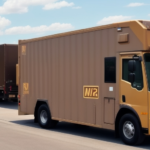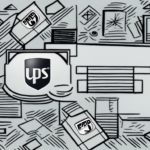Finding the Best Parcel Carriers for Your Business
Selecting the right parcel carrier is essential for businesses that rely on timely and efficient delivery services. The right carrier can enhance customer satisfaction, reduce shipping costs, and bolster your brand reputation. This guide delves into the critical factors to consider when choosing a parcel carrier, compares leading carriers, and explores strategies for optimizing your shipping operations.
Why Choosing the Right Parcel Carrier Matters
Ensuring Safe and Timely Deliveries
A reliable parcel carrier guarantees that your products reach customers safely and on schedule. According to the UPS 2023 State of Delivery Report, timely deliveries significantly impact customer satisfaction and repeat business.
Cost-Effectiveness and Value for Money
Different carriers offer varying pricing structures. Selecting a cost-effective carrier can reduce shipping expenses without compromising service quality. Businesses can save up to 20% annually by optimizing their shipping strategy, as highlighted by a FedEx study.
Enhancing Customer Satisfaction
Reliable and efficient delivery services lead to positive customer experiences. Delayed or damaged parcels can result in negative reviews and lost sales. A survey by Statista indicates that 85% of customers consider delivery speed as a critical factor in their purchase decisions.
Environmental Impact and Sustainability
With growing environmental concerns, choosing a carrier that prioritizes sustainability can enhance your brand's image. Carriers like DHL and UPS have implemented eco-friendly practices, including electric delivery vehicles and carbon offsetting initiatives.
Types of Parcel Carriers
National Carriers
National carriers specialize in delivering packages within a specific country. Examples include USPS in the United States and Royal Mail in the United Kingdom. These carriers typically offer extensive coverage and reliable domestic services.
Regional Carriers
Regional carriers operate within specific regions or states. They often provide more personalized services and may offer competitive rates for local deliveries. Examples include OnTrac in the Western United States and Canada Post in Canada.
International Carriers
International carriers handle shipments across multiple countries, offering services like customs clearance and door-to-door delivery. DHL, FedEx, and UPS are prominent players in this category, providing comprehensive global shipping solutions.
Specialized Carriers
Specialized carriers focus on specific types of shipments, such as oversized packages, fragile items, or high-value goods. These carriers offer tailored services to meet unique shipping requirements.
Key Factors to Consider When Selecting a Parcel Carrier
Delivery Speed
Assess the carrier's delivery timelines to ensure they align with your business needs. Some carriers offer expedited options for urgent deliveries, while others provide more economical slower shipping methods.
Pricing and Cost Structure
Evaluate the carrier's pricing models, including base rates, surcharges, and discounts for high-volume shipments. Understanding the cost structure helps in budgeting and cost optimization.
Service Quality
High service quality ensures that parcels are handled with care and delivered as promised. Review carrier ratings and customer feedback to gauge their reliability.
Technology and Tracking
Advanced tracking systems allow businesses and customers to monitor shipments in real-time. Features like automated notifications and integration with e-commerce platforms enhance the shipping experience.
Customer Service
Responsive customer service is crucial for resolving issues promptly. Choose carriers that offer robust support channels, including phone, email, and live chat.
Coverage Area and Reach
Ensure that the carrier can deliver to all the regions where your customers are located. International businesses should verify the carrier's presence in target markets.
Carrier Reputation
A carrier's reputation reflects its reliability and performance. Research online reviews, industry ratings, and customer testimonials to make an informed decision.
Comparing Top Parcel Carriers
UPS
UPS is renowned for its reliable delivery times and advanced tracking technology. Their extensive network ensures comprehensive coverage, making them a top choice for both domestic and international shipping.
FedEx
FedEx offers a wide range of shipping options, including overnight and international services. Their user-friendly online tools and robust customer support make them a favorite among businesses.
DHL
DHL excels in international shipping, providing efficient customs clearance and door-to-door delivery. Their global presence is unparalleled, especially in emerging markets.
USPS
USPS is known for its cost-effective domestic shipping solutions. They offer various services tailored to different business needs, including Priority Mail and flat-rate shipping options.
Other Notable Carriers
- Amazon Logistics: Ideal for businesses selling on Amazon, offering integrated shipping solutions.
- GLS: Popular in Europe, known for reliable and affordable parcel services.
Negotiating Better Rates with Parcel Carriers
Leveraging Discounts
Many carriers offer discounts for high-volume shippers or businesses that bundle multiple services. Negotiate rates based on your shipping volume to secure better deals.
Staying Flexible
Flexibility in shipping schedules can lead to cost savings. Consider shipping during off-peak times or opting for slower delivery options when time-sensitive delivery is not critical.
Shopping Around
Don't hesitate to compare offers from multiple carriers. Use competitive quotes to negotiate better terms with your preferred carrier.
Building a Long-Term Relationship
Establishing a long-term partnership with a carrier can lead to favorable pricing and exclusive benefits. Consistent usage and timely payments can enhance your bargaining power.
Managing and Tracking Shipments Efficiently
Parcel Management Systems
Implementing a parcel management system streamlines shipping operations by providing a centralized platform for tracking and managing shipments. Tools like ShipStation and Shippo integrate with multiple carriers, simplifying the process.
Real-Time Tracking
Real-time tracking enables businesses and customers to monitor the progress of shipments. This transparency reduces the likelihood of disputes and enhances customer trust.
Reporting and Analytics
Advanced reporting features offer insights into shipping performance, helping businesses identify trends and optimize their shipping strategies. Analytics can highlight areas for cost reduction and service improvement.
The Future of Parcel Delivery: Trends and Innovations
Autonomous Delivery Vehicles and Drones
The adoption of autonomous vehicles and drones is revolutionizing last-mile delivery. These technologies promise faster and more efficient deliveries, reducing reliance on traditional transportation methods.
Smart Tags and RFID Technology
Smart tags and RFID technology enhance tracking accuracy and inventory management. These innovations provide real-time data, improving the overall shipping experience.
Green Logistics and Eco-Friendly Shipping
There's a growing emphasis on sustainable shipping practices. Carriers are investing in electric vehicles, optimizing routes to reduce carbon emissions, and using eco-friendly packaging materials.
Same-Day and Instant Delivery Services
Consumer demand for rapid delivery is driving carriers to offer same-day and instant delivery options. These services cater to the needs of customers seeking immediate gratification.
Staying abreast of these trends ensures that your business remains competitive in the dynamic world of parcel delivery. By leveraging the latest innovations, you can enhance efficiency, reduce costs, and meet evolving customer expectations.
Conclusion
Choosing the best parcel carrier is a pivotal decision that impacts various aspects of your business, from customer satisfaction to operational costs. By carefully evaluating factors such as delivery speed, pricing, service quality, and sustainability, you can select a carrier that aligns with your business goals. Additionally, staying informed about industry trends and utilizing advanced shipping technologies will further optimize your shipping strategy. Ultimately, a strategic approach to parcel carrier selection can drive your business towards sustained growth and success.


















